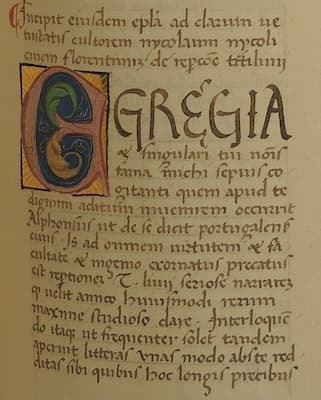The Spring lectures are being planned in a hybrid online and in-person format. Please register here
The Center for Italian Studies is pleased to host a lecture by Professor Rino Modonutti of the Università degli Studi di Padova. The lecture is entitled:
The “Literary Canon” of Early Venetian Humanism (1374-1446) between the Classics and the Moderns
In the first half of the fourteenth century, the Veneto region played a pivotal role in the early developments of Italian Humanism. In this same period, cities such as Padova and Verona were experiencing a central and vital political moment. In the second half of the century, Petrarch chose to spend his last years in Padua. The city was ruled by the signori da Carrara, with whom Petrarch had a close relationship, thus confirming the important relationship between political power and humanist intellectuals in this environment. However, the fifteenth century flourishing of Humanism was mostly a Florentine and Tuscan matter, while in the Veneto the indipendent cities progressively lost both their political and cultural authority in favor of Venice, which progressively conquered them.

By analyzing the Latin literary production of two Paduan Humanists of the early fifteenth-century, Sicco Polenton and Antonio Baratella, the paper will explore the ways in which Padua, a marginalized cultural center, was nevertheless able to make its voice heard in the main literary debates of the time, offering a peculiar perspective and a relevant contribution to crucial issues to the community of Humanists, such as the recovery of an extensive knowledge of Ancient literature, culture, and institutions, or the importance of the role of Petrarch and Dante in the new humanistic era.
Rino Modonutti is Associate Professor of Medieval Latin literature at the University of Padova, where he previously held the position of visiting professor of Medieval and Humanistic Philology. In 2010 he earned a Ph. D. in Medieval Latin Literature and Philology from S.I.S.M.E.L., and in 2014 a second one in Italian Studies from the University of Padova. His main research interests lie in Medieval historiography and encyclopedism, and in the tradition of Classical Latin Literature in the Late Middle Ages and in Italian Humanism. He published the critical editions of Albertino Mussato’s Ludovicus Bavarus (Ed. nazionale dei testi della storiografia umanistica, 2015) and De gestis Italicorum post Henricum septimum Cesarem (books 1-7) (Ed. naz. dei testi della storiografia umanistica-Rerum Italicarum scriptores, III serie, 2018), and the monograph Fra Giovanni Colonna e la storia antica. Da Adriano ai Severi (Padova, CLEUP, 2013). He coedited the volumes «Moribus antiquis sibi me fecere poetam». Albertino Mussato nel VII centenario dell’incoronazione poetica (1315-2015), eds. R. Modonutti, E. Zucchi, Firenze, S.I.S.M.E.L. Ed. del Galluzzo, 2017; L’Umanesimo di Sicco Polenton. Padova, la “Catinia”, i santi, gli antichi, eds. G. Baldissin Molli, F. Benucci, R. Modonutti, Padova, CSA, 2020; and the critical edition Sicco Polenton, Vite dei moderni. Mussato, Dante, Petrarca, Boccaccio, ed. trans. comm. L. Banella, R. Modonutti, Padova, CLEUP, 2020. His articles have appeared in Filologia mediolatina, Italia medioevale e umanistica, Studi sul Boccaccio, Segno e testo, Filologia e critica. Since 2013 he is member of the editorial board of BISLAM Bibliotheca scriptorum Latinorum medii recentiorisque aevi (S.I.S.M.E.L.); since 2007 he collaborates with C.A.L.M.A. Compendium auctorum latinorum medii aevi (since 2019 as lector), and with Medioevo latino. Bollettino bibliografico della cultura europea da Boezio a Erasmo (since 2020 as editor of the Paduan editorial team). He is member of the S.I.S.M.E.L. International Society for the Study of Medieval Latin Culture, of the Renaissance Society of America and the American Boccaccio Association.
The event is co-sponsored by the Department of Classics and the Medieval Institute.